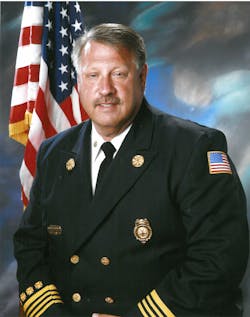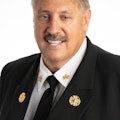Just when I think I’ve seen it all, something new comes about and shocks me. In this case, it angered me as well. In the category of “What were you thinking?!” comes a story out of Okaloosa, FL, where two paramedics thought it was a pretty cool idea to get into a “selfie war” with their camera phones in the back of the ambulance.
The pair, who have been arrested and charged with felonies and misdemeanors, allegedly took pictures of themselves with patients in the back of the ambulances. Often the patients were unconscious and intubated.
What apparently started as a workplace competition centered on the two paramedics taking selfies and texting the pictures to each other. Some of the texts encouraged the other to “step up” their game with the intent of outdoing each other. This ultimately devolved into a “sick, juvenile game,” according to Okaloosa Sheriff Larry Ashley.
According to news reports, between September 2015 and April 2016, a total of 41 different patients (age 24 to 86) were photographed or videotaped in the “selfie war.” Authorities said it appeared that only three of the 41 patients gave their consent. Two of 41 patients have since died and five were homeless patients.
Perhaps most reprehensible about all of this are some of the details about what the two paramedics did. One picture shows one of the paramedics posing with an elderly woman whose breast is exposed. Another picture shows one of the paramedics lifting the eyelid of a sedated patient. One of the videos shows the patient flailing her arms and legs while the paramedic was smiling for the camera and making comments.
Not only did the two lose their jobs, but they may also lose their freedom. According to Chief Assistant State Attorney Bill Bishop, "We do intend to prosecute them vigorously and seek jail time in these cases because it needs to set the example for everybody.”
Three other Okaloosa EMS Division employees were also terminated or removed from part-time status because they knew of the “selfie war” but failed to report the matter. Some employees did report the pictures and what was occurring.
Over my career, I have seen or heard of many things that have led me to ask, “What were you thinking?” And in this case in particular, I wondered, “Didn’t something in your head trigger you to think ‘this is wrong’ or ‘don’t do it’? What ethics, morals or logic do you possess that would lead you to believe that it is OK to humiliate and denigrate unconscious patients in the back of an ambulance?” I know are there a lot of young people in our profession, and sometimes their maturity levels don’t align with some of the things we have to do, but some things should be pretty obvious.
Unfortunately, the actions of these paramedics in Florida are not the first that fall into the category of paramedics behaving badly. Just when you think people who work in fire and EMS have learned not to take a picture of a patient and post it on social media, another one does just that. Just when you think people who work in fire and EMS have learned not to post thoughts on social media that are contrary to the oath they have taken or the job they perform, someone does just that.
Further, it’s not just posting that can get you in trouble. I know of one hospital in Memphis that temporarily relieved 21 employees in the emergency room while an investigation was being conducted because one employee posted a picture of a patient on Facebook (with the patient’s permission) and the other 20 hospital employees clicked the “like” button.
Whenever we are called into someone’s home for a medical emergency or we load a patient into the back of the ambulance, there is a reasonable expectation that the patient’s privacy will not be violated. That is the standard by which the fire and EMS profession is expected to perform.
So the next time you think something is going to be funny or the next time you think your mother would be embarrassed by what you did and may not want to face her friends at church, stop and think! Think of the repercussions of your actions and how they could affect you for the rest of your career, which, in some cases, could be a very short career.
About the Author
Gary Ludwig
GARY LUDWIG has served in three fire departments over his career: St. Louis, Memphis, and Champaign, IL. His fire, EMS and rescue career spanned a total of 46 years, and he has been a paramedic for over 44 years. Ludwig served as president of the International Association of Fire Chiefs in 2019-20. He has a Master’s degree in Business and Management, has written over 500 articles for professional fire and EMS publications and is the author of seven books.
Connect with Gary
Email: [email protected]
Facebook: Gary Ludwig
Twitter: @ChiefGaryLudwig
Website: garyludwig.com

